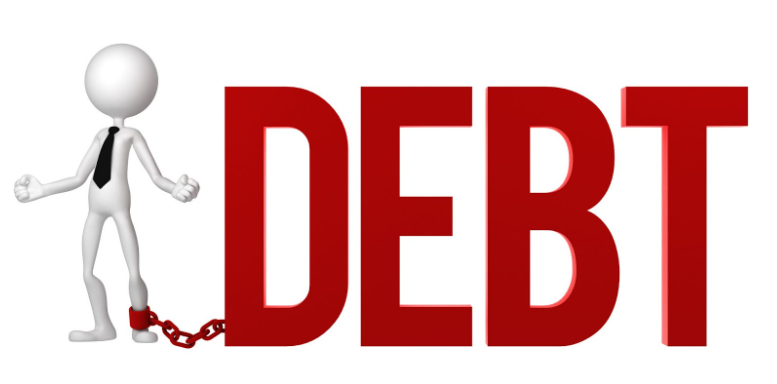
Breaking Down Misconceptions About Debt
When we hear “debt,” many of us immediately think of something negative. However, not all debt is the same, and understanding its different aspects can change the way we view and manage our finances.
Debt is a common part of our financial world. For some, it’s a means to buy a home, get an education, or even start a business. But the key to using debt effectively is understanding it fully. If we don’t, we risk making financial decisions based on half-truths and misunderstandings.
Unfortunately, there are many misconceptions about debt. Some of these myths can prevent people from seizing beneficial financial opportunities, while others might lead to financial strain.
In this blog, we’ll debunk some of the most common myths surrounding debt.
Misconception #1: All Debt is Bad
When the word ‘debt’ is mentioned, it often conjures negative images in our minds. We think of financial burdens, sleepless nights, and strained budgets. This has led many to believe that all forms of debt are detrimental to our financial health. However, this viewpoint can be oversimplified and, in some cases, misleading.
Debt, like any financial tool, isn’t inherently good or bad; it’s how you manage and use it that defines its impact on your financial well-being. There are instances where taking on debt can be advantageous. For example, a mortgage allows individuals to own homes, building equity over time. Similarly, student loans can be seen as an investment in future earning potential, enabling people to pursue higher education and land better-paying jobs.
On the contrary, accumulating high-interest credit card debt for non-essential purchases or living beyond one’s means can lead to financial strain. Such debt can overgrow, becoming challenging to pay off and resulting in long-term financial stress.
The key is to differentiate between ‘good’ debt, which can lead to increased net worth or valuable future opportunities, and ‘bad’ debt, which might not offer future value and can drain resources.
Misconception #2: Making Minimum Payments is Enough

You’ve received your credit card statement, and you notice two amounts: the total balance and the minimum payment.
Making only the minimum payment on your credit card or loan may seem like a smart, budget-friendly move. After all, you’re avoiding late fees and keeping your account in good standing, right? However, there’s more to the story.
Most of your payment goes towards the interest when you pay only the minimum. This means it can take a very long time to pay off your debt, all while you’re accumulating a substantial amount in interest. So, while it might be tempting to make just the minimum payment, especially during tight financial months, it’s crucial to understand the long-term implications of this choice.
Misconception #3: Having No Debt Improves Your Credit Score
A high credit score is a badge of honor in the financial world. It can open doors to better interest rates, loan approvals, and even job opportunities. With this in mind, many believe that having no debt at all is the fastest route to achieving a stellar credit score. But is it?
Credit scores are a reflection of your financial behavior, particularly how you manage and repay debt. If you never have any debt, credit bureaus don’t have a way to determine how responsible you are with borrowed money. Simply put, they have nothing to base your score on.
Without any debt or credit history, lenders might see you as a wild card, uncertain if you’re a safe bet.
It’s a balance. While drowning in excessive debt can harm your credit score, responsibly managing a moderate amount can, surprisingly, improve it.
Misconception #4: Bankruptcy is the Only Solution to Overwhelming Debt
When faced with mounting bills and creditors knocking at the door, many believe declaring bankruptcy is their only escape. It’s perceived as a reset button. While bankruptcy can provide relief in some situations, it’s not the sole solution for overwhelming debt.
Bankruptcy has long-term implications, affecting credit scores and financial opportunities for years. Furthermore, the process isn’t guaranteed to leave a clean slate. Some debts, like certain student loans, might not be wiped away.
Before deciding on bankruptcy, exploring other options like debt consolidation, consumer proposals, or credit counseling is worth exploring. Each offers a different approach to managing debt; one might be better suited to your situation than the others.
Misconception #5: You Can Outrun Your Debt

Some people think that if they ignore their debt long enough, it’ll magically disappear. While it’s tempting to believe in this ‘out of sight, out of mind’ approach, debt has a way of catching up.
Avoiding debt only results in higher interest, late fees, and potential legal actions. Creditors have tools and resources to track down unpaid debts. Not to mention, unpaid debts can tarnish your credit score, making future financial endeavors more challenging.
Facing debt head-on and seeking solutions will always be a more fruitful approach than trying to run from it.
Misconception #6: Only the Wealthy Can Become Debt-Free
While having significant resources can make the process faster, becoming debt-free is more about strategy and discipline than the size of one’s bank account.
Many Canadians, irrespective of their financial class, have overcome substantial debts through careful budgeting, financial education, and perseverance. By prioritizing debt, cutting unnecessary expenses, and seeking professional advice, anyone can pave their path to a debt-free life.
Conclusion
Debt, in itself, isn’t necessarily a foe. When approached with understanding and managed wisely, it can be a tool to facilitate dreams and aspirations. As we progress in our financial journeys, it’s crucial to remember the importance of continuous learning, asking questions, and seeking expert advice.
You don’t have to tackle your debt all by yourself. Your debt can be reduced by up to 80%, and interest will stop immediately. Call us at (416) 900-2324 to schedule a free consultation with one of our debt experts at EmpireOne Credit. Being debt-free feels good!





